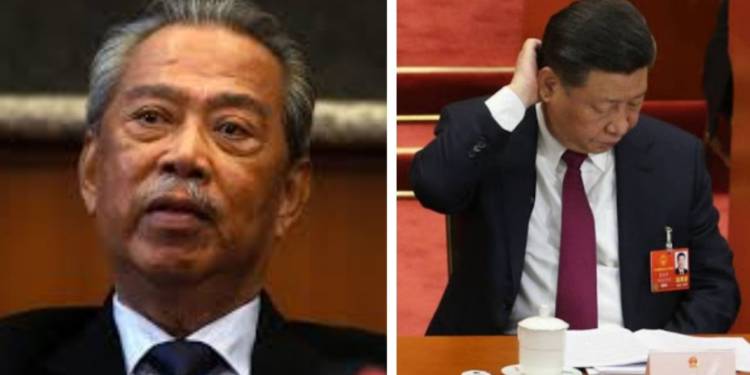In the era of colonization, the European companies used to come to Asian countries for trade and then progressively occupy the whole of the country. In the modern age, occupying any country is not that easy, therefore, China, in order to fulfil its expansionist ambitions, is implementing condescend version of imperialism.
Under what is popularly known as Port-Park-City (PPC) model, China develops port in infrastructure starved countries for the establishment of Special Economic Zones (SEZs), thereby establishing a business park that could turn up into a city. Royal United Services Institute for Defense and Security Studies paper has described it as Port-Park-City (PPC) model. What is unique about this model is- China forces the countries opting for the project to source material from Chinese companies, take a loan from Chinese banks, give the contract to Chinese companies, and employ Chinese workers.
So, this is a sort of holistic project to create a Chinese colony in that country.
China has bagged a project to develop the same kind of project in Malaysia in 2017 when the country was being ruled by CCP friendly Prime Minister Najib Razak. Within three years, China developed what is now known as Digital Free Trade Zone (DGTZ) in Malaysia. DGTZ has shown huge economic potential, as e-commerce grew exponentially since the building of this new zone.
However, in the post-COVID –19 world, every country is looking towards whatever comes from China through a security lens. When looked from a security lens, it clearly looks like Malaysia is compromising National Interest and regional security by allowing China to become such a big player in the country.
The DGTZ is strategically located in the Malacca strait, which China always wanted to control as it is one of the 9 major chokepoints of global trade.
India is an undisputed leader in the Indian Ocean given its strategic location, and New Delhi sort of controls the trade route that passes through Malacca strait. But, with China’s growing presence in the DGTZ which was built under the Silk route plan, India’s dominance can be challenged.
“We want to redefine global trade… I look forward to the rebirth of the new Silk Road,” said the then Prime Minister Najib Razak at the opening ceremony of DGTZ, which was also officiated by Mr Jack Ma, founder of Alibaba.
“With DFTZ, small businesses can use the digital way to sell and buy things. They can also buy global and sell global,” said Mr Ma in 2017.
But in the last two years, Alibaba has ended up monopolizing the e-commerce operations in Malaysia directly or indirectly. It also provides technological support to Malaysian MSMEs in the digital sector, which means the company has the data of almost every Internet user of Malaysia.
“The initiative is led by Alibaba, which effectively makes it a monopoly as of now,” said Abhineet Kaul, a director at Frost & Sullivan’s Asia Pacific public sector and government practice. “More private players need to be encouraged to provide similar services to ensure that there is sufficient competition in the market.”
The competition in DFTZ is skewed in favour of Chinese firms and this is leading Malaysia’s complete dependence on China in the digital sector. “The e-service platform is open to more Chinese (small and medium-sized firms) from China,” which means Malaysian vendors will face tougher competition, noted Chan Xin Ying, a Malaysia research analyst at Singapore’s Nanyang Technological University.
Malaysia’s dependence on China in the digital sector is a threat to National Security.
Given the fact the Chinese government has already passed National Intelligence Law and Cybersecurity Law in 2017- all the Chinese companies, whether private or public, will have to share data with intelligence agencies. “As long as the competitive advantage in Malaysia’s DFTZ favors Chinese firms over Malaysian ones, exposure to infiltration by China’s intelligence services through Chinese digital investments would only continue to rise within Malaysia, especially through avenues such as the DFTZ,” wrote Hugh Harsono, a US Army officer in The Diplomat.




























